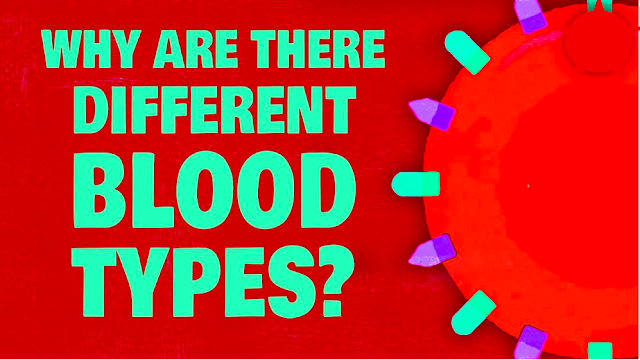Despite all of humanity’s conflicts, it is frequently remarked that we all share the same blood. Although it’s a wonderful idea, it’s not entirely true. In actuality, there are several different types of blood. Hemoglobin, a protein found in our red blood cells, attaches oxygen so that the cells can carry it throughout the body. On the exterior of the cell membrane, however, they also have a different type of complex protein. White blood cells, which are immune cells that defend against infection, communicate with these proteins, which are referred to as antigens.
The immune system can recognise your body’s own cells without fighting them because of antigens, which act as identification markers. Your blood type is determined by the A and B major antigen types. However, how do we produce four blood types with just two antigens? In each case, three separate alleles, or gene variants, are responsible for coding for the antigens. Because we inherit one copy of each gene from each parent, each person has two alleles that determine their blood type. The A and B alleles code for A and B antigens, whereas the O allele codes for none. Depending on which is more dominant when these two are distinct, one takes precedence over the other.
The O allele is recessive, whereas the A and B alleles are dominant for blood types. As a result, type A blood is given to you while type B is given to you by A and A. The ensuing codominance will create both A and B antigens, which is type AB, if you inherit one of each. Since the O allele is recessive, either type A or type B will occur from pairing the other alleles, which will override it. However, if you happen to inherit two copies, instructions to produce blood cells devoid of the A or B antigen will be expressed. Knowing the blood types of both parents allows us to anticipate the relative likelihood of the children’s blood types due to these interactions.
Why is blood type important?
Finding the right one for a blood transfusion can mean the difference between life and death. When type A blood is transfused into type B blood or vice versa, the recipient’s antibodies will attack and reject the foreign antigens, possibly causing the transfused blood to clot. However, because they produce both A and B antigens, people with type AB blood are universal recipients because they will not develop antibodies against either.
People of blood type O, on the other hand, do not create either antigen, making them universal donors, but their immune systems will produce antibodies that will reject any other blood type. Unfortunately, new antigen systems, especially the Rh factor, which was first identified from Rhesus monkeys, make it more difficult to match donors and recipients. Rh+ and Rh- denote the D antigen of the Rh blood group system being present or absent, respectively. Additionally, it may prevent some blood transfusions and lead to serious pregnancy issues. Hemolytic illness of the newborn is a condition that can occur when a Rh- mother is carrying a Rh+ kid because the mother’s body will develop Rh antibodies that may pass through the placenta and attack the foetus.
Although science does not confirm this, several cultures think that a person’s blood type is related to their personality. Despite the fact that the proportions of the various blood types vary throughout human groups, experts are unsure of how or why these variations came about; they could have arisen as a result of genetic drift or as a defence against blood-borne infections. Finally, the antigen repertoire varies among species. In contrast to the thirteen blood kinds seen in dogs, the four major blood types that humans and apes share seem insignificant.
Related Searches:
which blood type has the weakest immune system, what diseases are blood type o prone to, advantages of blood group o positive, which is the strongest blood group, blood groups and their characteristics, what is the most common blood type, 5 importance of blood grouping, blood type and disease resistance.


